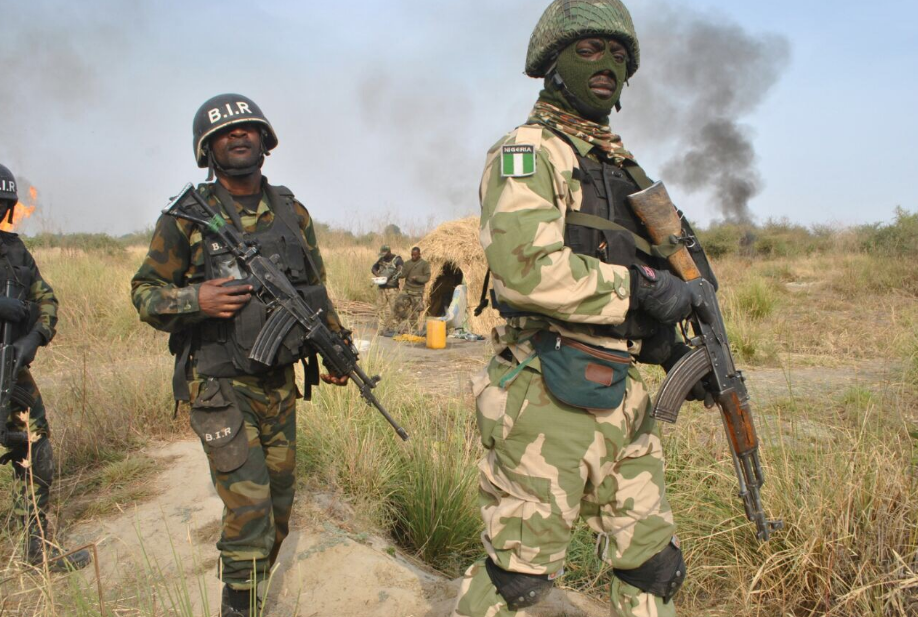International
Why Russia Sent Troops to Venezuela

Russia recently sent two military planes full of troops and equipment to Venezuela. It’s a move that could provoke a strong response from the United States and potentially plunge the South American nation into further chaos.
Around 100 Russians landed outside of Caracas, Venezuela’s capital, with unidentified equipment on Saturday. It’s not entirely clear why they’ve arrived now, although some fear they’ve come to help Venezuelan President, Nicolás Maduro, fend off a US-led attempt to depose him. While Russia has in the past sent a few advisers to Venezuela, 100 is more than normal, CBS News reported.
Other experts and US government officials, though, say Russia is merely trying to protect diplomatic and other staff in Venezuela as well as perform maintenance on their military equipment in the country. In other words, the 100 or so Russians are in Venezuela to help themselves, not Maduro.
But US officials and experts remain vigilant, mainly because there’s a small fear that Moscow might intervene militarily in Venezuela’s crisis like it did in Syria.
Since January, the Trump administration, joined by governments in Latin America and Europe, has called for Maduro to step down, partly because the country has suffered from an economic collapse and humanitarian crisis during his rule.
The US and others now recognise Guaidó, the leader of the country’s opposition-controlled legislative body, as Venezuela’s rightful president. Russia didn’t take kindly to that.
“Destructive interference from abroad blatantly violates basic norms of international law,” said Russian President Vladimir Putin, who orchestrated the annexation of Crimea.
And while the Kremlin insists it has a right to send Russian troops to Venezuela, the US isn’t happy about it.
According to the State Department, Secretary of State Mike Pompeo told Russian Foreign Minister Sergei Lavrov in a March 25 call that America “will not stand idly by as Russia exacerbates tensions in Venezuela.”
“The continued insertion of Russian military personnel to support [Maduro] risks prolonging the suffering of the Venezuelan people,” the call readout continued.
And on Wednesday, seated alongside Guaidó’s wife in the Oval Office, President Donald Trump said, “Russia has to get out” of Venezuela.
All of which raises the question: Why would Russia risk inciting US anger over Venezuela? It turns out there are two key reasons.
The Trump administration says it’s trying to remove Maduro because of his horrid mismanagement of the country. Some critics believe the main reason, among others, is that Trump wants to make his fight against socialists a wedge issue in the 2020 presidential election.
The US focus on Venezuela, long a target of anti-socialists in the United States, has led it into a small-scale proxy war with Russia.
At first glance, it seems odd that Moscow, which recently has spent so much time trying to wield influence in Europe and the Middle East, cares so much about a Latin American country. But it turns out that Venezuela has been a top concern of Russia’s for decades.
The first reason is allying so closely with Venezuela gives it a firm foothold in the United States’ hemisphere. Russia, especially under Putin, has designs to become a top global player. Wielding a lot of influence in South America, then, is one way to do that and possibly curb Washington’s power in the process.
Russia built and maintained its friendship with Venezuela by getting close to the country’s socialist leadership, which has been in power since the 1990s. That makes the US-led effort to remove Maduro so troubling for Moscow: If Maduro leaves and Guaidó takes his place, then Venezuela may become more friendly with the US than with Russia.
“Were Venezuela ever to fall from the Russian orbit, it would be very painful for the Kremlin,” Vladimir Rouvinski, an expert on Russia-Venezuela relations at Colombia’s University of Cali, wrote in a February report for the Wilson Center in Washington. “Moscow is trying hard to prevent this from happening.”
Economic goals
The second reason is purely about economics. Venezuela has bought billions in Russian military equipment, to the point that nearly all of its modern-day arsenal comes from Russia. Moscow certainly doesn’t want to lose such a prominent customer.
But the real economic links centre on oil.
Russia’s national oil company, Rosneft, has spent about $9 billion investing in Venezuelan oil projects since 2010, Reuters reported on March 14. It has yet to break even, and in fact is owed roughly about $3 billion from Venezuela.
What’s more, Rosneft owns two offshore gasfields in Venezuela and has a stake in around 20 million tons of crude there.
It’s why Igor Sechin, Rosneft’s chief and arguably Russia’s second-most-powerful man, cares so much about Venezuela. For example, last November he traveled to Caracas to meet with Maduro, mainly to complain about all his company is owed.
Between Russia’s worldwide aims and its economic interests in Venezuela, then, it’s no wonder it sent a few troops to the country to bolster Maduro and shows its resolve.
“Russia is now so deeply invested in the Maduro regime that the only realistic option is to double down,” Alexander Gabuev, an expert at the Carnegie Moscow Centre, wrote in the Financial Times on February 3.
Advertise or Publish a Story on EkoHot Blog:
Kindly contact us at [email protected]. Breaking stories should be sent to the above email and substantiated with pictorial evidence.
Citizen journalists will receive a token as data incentive.
Call or Whatsapp: 0803 561 7233, 0703 414 5611
















